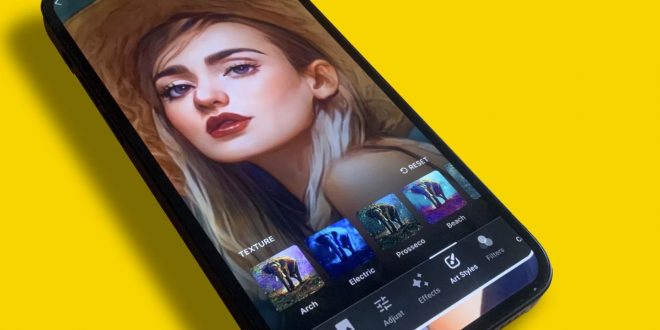AI photo apps: over? AI-powered photo apps like Lensa AI’s “magic avatars” and others that promise to turn text into images have gone viral on the App Store in recent months. Apptopia data shows consumer interest in AI photo apps has fallen as quickly as it rose.
The firm tracked download growth and in-app spending for top AI photo apps worldwide.
Apptopia analyzed Lensa AI and other leading AI photo apps, including Voi, Remini, Pixelup, Fotor, Wonder, FacePlay, Aiby, FaceApp, Gradient, Dawn AI, Facetune, Prequel, Voilà AI Artist, New Profile Pic Avatar Maker, and Meitu. Voi was released on December 7.
Apptopia found that these AI apps started taking off around Thanksgiving and peaked in downloads and in-app purchases around mid-December. The apps had 4.3 million daily downloads and ~$1.8 million in in-app purchases at their peak.
Those numbers have dropped significantly since. On November 11, apps earned $0.37 million. On November 19, 0.84 million downloads occurred.
As of yesterday (not shown on the chart below), the same group of apps had 952,000 downloads and $507,000 in consumer spending.
Another fad comes and goes. From my newsletter this morning. pic.twitter.com/qRFCuCucxc
— Adam Blacker (@AdamBlacker25) January 27, 2023
Lensa AI started this hype cycle. Lensa AI, which has been around since 2018, went viral in late November to early December 2022 thanks to its new avatar feature, topping the iOS App Store’s “Photo & Video” charts ahead of YouTube and Instagram. The app’s “magic avatars” feature, which used the open-source Stable Diffusion model to process selfie photos into digital artist-like avatars, was popular.
However, this technology’s use drew complaints. The app was too easy to trick into making NSFW images, and artists were upset that their work was opted into the training data without their consent. Many AI profile pics resembled artists’ work, but they didn’t profit from it.
Consumers responded to ethical concerns. Some people left comments on AI photos and profile pictures on social media to warn others not to use an app that steals from artists. This backlash likely reduced AI art demand. It’s no fun using an AI pic for your profile if you’re accused of theft.
After watching TikTok videos about the feature, some people only wanted to see their AI profile photos. After creating a collection of photos, the feature was not necessarily used again.
Some users complained about the subscription needed for a one-time task.
The app stores were also overrun with AI photo apps, pushing many others into the App Store’s Top Charts, some of which worked better than others. AI photo apps occupied the top three U.S. App Store spots in mid-December, and many others entered the Top 100. AI art apps made up 8 of Sensor Tower’s top 100 downloads. The apps were all AI avatars, like Lensa AI popularized, or AI image generators, like those that generated images from text prompts.
Market saturation occurred immediately. ChatGPT, another AI technology, was gaining popularity. On November 30, 2022, the AI chatbot gained popularity. AI apps flooded the App Store again in January. Instead of Lensa AI copycats, it was dubious ChatGPT apps. Apple removed one fake ChatGPT app, but others remained.
After announcing integrations with OpenAI’s new chatbot technology, which promises to be better than ChatGPT, Microsoft’s Bing rose to the top of the App Store. Despite the immediate threat, AI chatbots’ ability to spread misinformation casts doubt on their ability to replace traditional search. These apps currently intrigue consumers.
Photo AI apps, ChatGPT, and now Bing show that people are interested in AI technology and want to try it out. It’s too early to predict a winner.
 Tech Gadget Central Latest Tech News and Reviews
Tech Gadget Central Latest Tech News and Reviews




